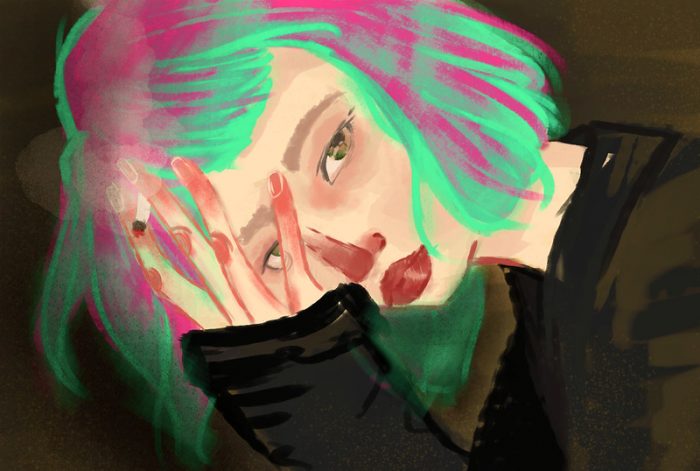Elephant’s Continually-updating Coronavirus Diary. ~ Waylon
~
What a superpower the gift of empathy is, but it can also create immense psychological distress especially in current times.
Goldman defines empathy as a psychological process that involves the ability to put oneself in the “mental shoes” of another individual to understand his or her thoughts, emotions, or feelings.
As a result of this empathic process, the observer is more than likely experiencing similar emotions as the person or individuals they are observing. There’s a lot of research supporting the profound impact of empathy and its importance in our relationships, be that at work or in our personal lives.
Some individuals display a high degree, oftentimes, to an extreme degree, of empathy. Some of these individuals identify as being empaths.
Such people naturally gravitate toward helping professions, such as medicine, nursing, psychological counselling, social work, education, life coaching, and ministry. Compassion and empathy are usually the internal motivating factors for people entering helping and healing environments. To work in these fields is not without risk to self: physically, emotionally, and even psychologically.
However, as we are immersed in the current COVID-19 pandemic, and as a psychologist myself, I cannot help but think of the impact this will have for empaths in general, those working in helping professions, and for society as a whole.
We are bombarded with ICU images of those dying and videos of children in hospitals coughing profusely. Even if our work does not directly involve those infected or affected with COVID-19, we are certainly not as protected and safe in our homes as we would like to believe.
Yes, there’s the danger of being infected by the virus, but are there other dangers that await us for which we are not entirely prepared?
We are vulnerable, exposed, and left to consider our own mortality.
Is there a trap that we can unwittingly fall into at a time so drenched in loss, fear, and suffering?
Yes, most definitely!
For those individuals who are more prone to display high degrees of empathy, there’s always the possibility of falling into the “empathy trap”.
This is when we overshare in the feelings and experiences of others to the extent that we take on their suffering, leading to physical and psychological exhaustion. There are so many empaths who find themselves in caregiving roles, whether formally or informally. It would be strange not to expect that in a time of heightened distress, these individuals’ empathy barometer would be off the scales.
Whether you are a frontline nurse or doctor, or staying at home to keep your family safe, you are at risk for what is commonly referred to as compassion fatigue or even vicarious trauma.
We are constantly being exposed to media reports and every country’s news about restrictions and infection rates. We are hardly immune to its impact even if we are at home, isolated. Whilst the highly empathic are more at risk, so are those impacted by everyday experiences of living in a pandemic.
We are all bound to fall into the trap. Some faster than others.
The current times can impact those in helping professions and empaths to the point of feeling overwhelmed by the suffering of those infected but also affected by COVID-19.
This can lead to feeling incredibly drained and even fatigued.
It can feel like you have actually reached your limit of how much you can care or you are unable to stop thinking about the millions who are dying or are in the ICU.
If you’re an empath, you might be watching heartbreaking video clips of the elderly suffering or the poverty-stricken countries who might actually starve to death due to an already scarce resource of food being further limited and unavailable due to a loss of income. Maybe your heart goes out to those stuck with no money in foreign countries unable to find their way home due to border closures. Maybe you are concerned about the children isolated in homes that are unsafe for them or the increase we’re seeing in domestic violence reports in isolation.
Both compassion fatigue and vicarious (secondary) trauma immediately impact those who have high levels of empathy and who usually prioritise the needs of others above their own.
Most have families of their own too, so they have a lot to consider. But regardless, the needs of others will usually trump their own. There is a great risk with this pandemic of secondary trauma and compassion fatigue being on the increase regardless of whether you work in helping professions or not.
So what do we need to be watching for, as both compassion fatigue and vicarious trauma can begin as a slow buildup which we might often overlook in our efforts to help?
Often for those feeling impacted by the suffering of others, we tend to give more of ourselves and work harder to support them in their suffering without noticing or giving attention to our own suffering.
Empathic people can at times be guilty of overextending themselves for the benefit of others.
It should not be mistaken for burnout. Burnout can usually be addressed.
I want to be clear that I believe that the impact of compassion fatigue and especially vicarious trauma for empathy-driven individuals can be profound. It can lead to stress-related symptoms and job dissatisfaction amongst those who are caregivers, and decrease productivity and increase turnover in the healthcare system.
In times of crisis, we are more than likely to overlook this because, well frankly, we have the more obvious life-threatening issue of COVID-19. However, even if we give this less priority now, it is not going to just disappear later. Whether we like it or not, it will be waiting for us in the years to come.
During COVID-19, our most empathic humans are feeling fear, pressure, ongoing emotional trauma, and isolation.
So what do we need to be watching out for?
It’s always important to address what you are noticing, quickly, and not allow the symptoms to go unattended to. Seek care if the following symptoms exist for more than two to four weeks:
Cognitive
Difficulty thinking clearly
Disorientation
Confusion
Difficulty problem solving
Memory issues
Misinterpretation of situations and content
Emotional
Fear and terror
Perceived danger and panic
Anger, hostility, and frustration
Irritability
Deep sadness
Difficulty maintaining emotional balance
Behavioural
Risk-taking
Rule-breaking, increasing the risk of infection
Endangerment of others
Increased use/misuse of alcohol, drugs and/or prescription medication
Conflict with others
Withdrawal
Isolation
Physical
Rapid heart palpitations
Muscle tension
Headaches
Tremors
IBS related symptoms
Nausea
Inability to relax
Fluctuations in sleeping patterns and appetite
Nightmares and flashbacks
High level of adrenaline in one’s system
Unlike any other experience, COVID-19 impacts every single one of us.
The trained psychological professionals, those with a trauma history and those without, healthcare professionals, first responders, and frontline workers—we are all experiencing every bit of it. We are simultaneously going through our own processes while still actively engaged in the care of others. We are all going to have reactions to this.
We are going to get anxious and experience fear.
We are going to experience grief.
We are going to break down and scream at times.
Those of us who are helping others are going to experience excessive stress, so let us not underestimate that for even a second.
We are not weak because of this. We are simply vulnerable and innately human. If ever there was a time for self-compassion, it is now. This might seem like a task that we do not have time for, but if you’re a helper then you need this more than ever. Contact the mental health providers in your country because this is the time to reach out.
I know that in times like this all we want is nourishment from others, and social distancing might make this extremely difficult, but practicing self-care needs to be incorporated into our daily space. And when we have no time for it, this is usually when we need to practice it even more.
What I mean by self-care is not the exclusion of others, in fact, it is a recognition of your needs in all areas of your well-being. It is filling and refueling your tank as a non-negotiable priority. This is not where you need to show just how much you can bear compared to others.
The immensely powerful gift of empathy, in current times, needs to be directed inward too, as we absorb the suffering of others. Healers and helpers can only be effective if our emotional tanks are refuelled so we can be of service and of benefit to the various people in our professional and personal lives.
The impact of this virus is more than just physical—we need a holistic view of its impact not just for the ones we care, for but for ourselves as well.
The empathy trap exists, and we are already beginning the descent into it. If we can recognise it sooner rather than later, we have a chance to prevent lasting long-term damage to our society as a whole.
~


 Share on bsky
Share on bsky





Read 24 comments and reply